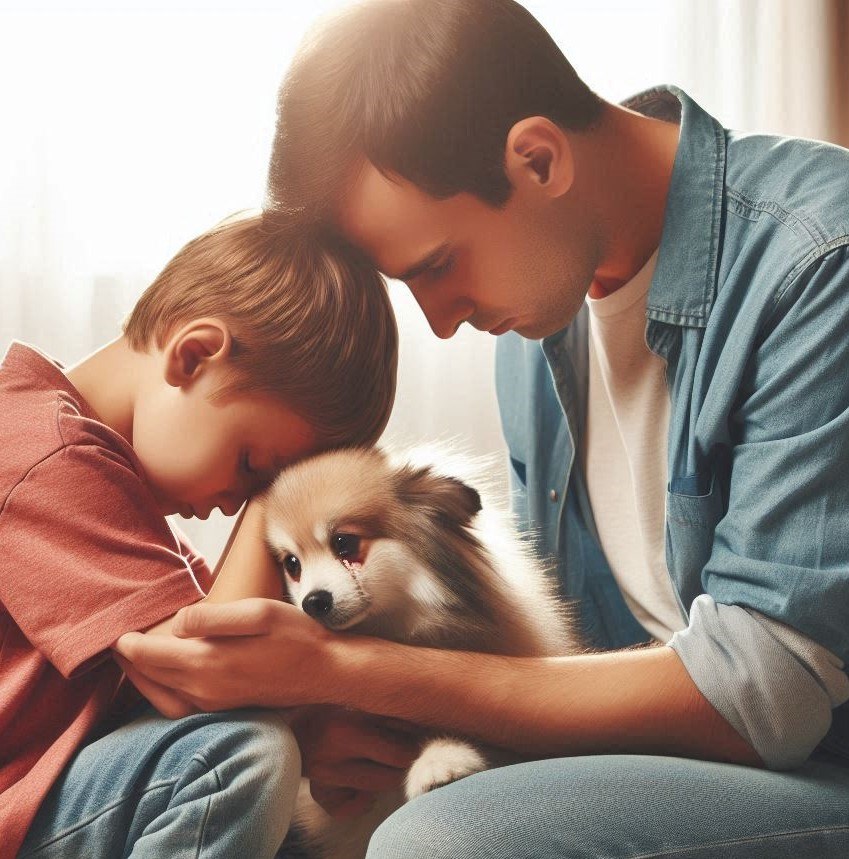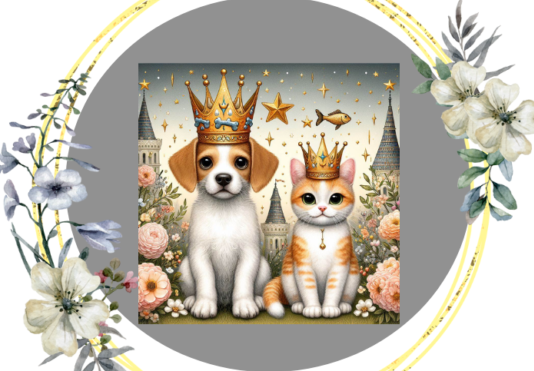Guiding Young Hearts:
Strategies to Comfort Children After Losing a
Beloved Pet

Grief can be a tough nut to crack, especially for children dealing with a significant pet loss for the first time. Knowing what their grief can look like can help you better support them through it.
- Children go through stages of grief just like adults, but it might not always look the same. They can switch between being sad, angry, confused, and even happy pretty quickly. If your child is young, they might not fully understand that their pet isn’t returning.
- Different age groups handle grief differently. A toddler might just be cranky and have trouble sleeping, while an older child might have more questions and need more reassurance. Teens, though, might act like they’re okay but can feel pretty isolated. Recognizing these signs helps you offer the proper support.
- Grief stress can manifest in surprising ways. While some children may only experience physical symptoms like headaches or stomachaches, others may start acting out at home or school. It’s essential to be patient and let them express their feelings.
- It’s crucial to remember that children’s comprehension and feelings develop with them. Younger children could need more precise explanations and greater comfort, while older youngsters might gain from being given more space to talk or from getting outside counsel. Depending on their developmental stage, you can support them as they grieve.
Effective Communication About Pet Loss
How to Talk About Pet Loss with Sensitivity
It can be challenging to discuss a pet’s death with children. Being sincere is vital, but so is showing compassion. Tell them that it’s okay to feel depressed and that mourning is a typical reaction to losing a loved one. Spend some time sitting down with them, keeping eye contact while you explain the matter in terms they can understand.
Encourage your children to share their feelings and thoughts. Listen actively to what they say without interrupting or correcting them. It’s important that they feel heard and understood. Sometimes, just having someone to talk to can make a world of difference.
Balancing honesty and sensitivity are essential. Avoid using phrases like ‘gone to sleep’ or ‘ran away,’ which can confuse younger children and make things scarier. Instead, explain that their pet has died but also reassure them that they are no longer in pain.
Stories and metaphors can be very helpful for younger children. Consider using age-appropriate books about pet loss to help explain what’s happened. Sometimes, a good storybook can make the sad reality easier to digest.
 .
.
Creating a Supportive Environment
Creating a comforting space for your child during their grieving process is crucial. Start by offering plenty of emotional hugs and verbal reassurance. Let them know it’s okay to be sad, angry, or confused. Encourage them to express their emotions however they need, whether through talking, crying, or even drawing.

- Include your children in the rituals or memorials for their pet. Whether it’s a small ceremony, planting a tree, or creating a scrapbook, these activities can provide a meaningful way for them to honor and remember their furry friend. It also helps them feel more connected and less alone in their grief.
- It’s crucial to keep up regular daily activities when facing loss. When all else feels unstable, predictability may be extremely consoling, giving a sense of stability and normalcy. Maintaining consistent food schedules, bedtimes, and family activities can aid in fostering stability during this trying time.
- Keep daily routines as consistent as possible. Predictability can be a great comfort during times of loss. Regular mealtimes, bedtimes, and family activities can offer a sense of security and normalcy when everything else seems upside down.
- Encourage creative expressions of grief. Art, music, and play can influence kids to process complex feelings. Maybe they want to draw pictures of their pet, write a story, or even create a little play. This isn’t just a distraction; it’s a valuable coping mechanism.
- Your support plays a huge role in helping your child navigate their emotions. Be present, be patient, and remind them that they are loved and supported through every tear and smile.
Long-term Coping Strategies
Helping children find closure after a pet’s death is crucial for their emotional well-being. One way to facilitate this is by encouraging them to talk about their pet whenever needed. Reminiscing positively about the good times helps keep the memory alive in a comforting way.
It is not advisable to wait to seek professional assistance if your child seems to struggle more than usual. Counselors and therapists specialize in grief work and can offer age-appropriate advice and techniques. Seeking assistance when required is not a sign of weakness and can significantly impact your child’s recovery. Building resilience in children means teaching them that it’s okay to experience a range of emotions and that they will feel better over time.
Teaching children that experiencing a wide range of emotions is normal and that they will eventually start to feel better, is helping them become resilient. Reassure them that better times will come again, that it’s alright to cry, and that happier memories will return.
If you have any questions, personal experiences or tips to share, I’d love your feedback. Please make comments below. Thanks for joining me on this journey for helping children learn about coping with pet loss.
-Janice-

Very well thought out article. It is true, the first loss of a pet like that is difficult. for a child.
Thank you for the comment, Dave.
Some dog parents also have difficulty with the loss of a pet companion.
Janice
❤️ We lost our dog and we lost a hermit crab and they both affected our children equally. Even after years have gone by, they still remember both events. We were just as affected as them. So the same applies to adults as well.
Rob,
I’m sorry to hear of your pets’ loss. How long ago was that? What are your children’s ages? Memories are wonderful though.
Yes, the pet parents are also affected. I have a post on my website, if you would like to read it.
@https://pamperedpawspalace.com/pet-loss-grieving-process/
Happy Pet Trails to you,
Janice